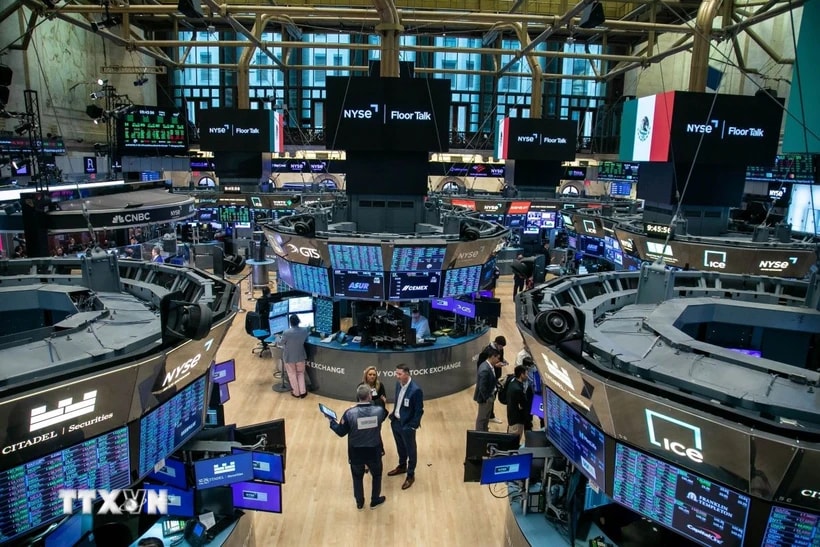Investors are anxiously awaiting the first trading session of the week after a massive sell-off on Wall Street last week due to tensions over President Trump's tariff policies.

Wall Street is likely to continue its slide when it reopens early next week, following a sharp decline last week after the Trump administration announced higher reciprocal tariffs than expected by experts and analysts, and China announced a 34% retaliatory tariff on US goods, according to futures contracts at the end of the day on April 6.
Specifically, futures contracts - derivatives that allow investors to bet on market movements - pointed to a 3.56% drop for the Dow Jones index and a 3.85% drop for the S&P 500 index.
Investors are anxiously awaiting the first trading session of the week after a massive sell-off on Wall Street last week due to tensions over President Trump's tariff policies and the response of the world's second largest economy, signaling a volatile trading week ahead.
Two days after President Trump announced new tariff policies, Wall Street recorded another sharp decline last weekend when all three major indexes lost nearly 6% due to escalating global trade tensions.
At the end of the week, the Dow Jones index fell more than 2,200 points, equivalent to 5.5%. This is the sharpest decline since June 2020. This is also the first week in history that this index recorded two consecutive sessions of declines of more than 1,500 points.
Meanwhile, the S&P 500 index lost 5.9% of its value, reaching its lowest level since March 2020. Compared to its most recent peak in December last year, the S&P 500 has fallen 17%, and in just two sessions last week, the capitalization of companies in the index "evaporated" 5,000 billion USD.
The Nasdaq index - which tracks many technology stocks - did not fare any better, falling 5.8% and officially falling into bear territory after falling a total of 22% from its peak last December.
Mark Malek, chief investment officer at Siebert Financial, warned that "the bull market is dead." He said there may be some interspersed rallies in the coming days, but they will be limited and unsustainable.
The fact that the White House boss announced the sky-high reciprocal tariffs right in the first quarter reporting season of businesses makes the situation even more unpredictable.
President Trump's tariffs and China's tough retaliation just two days later have roiled global markets, from financial to goods and services, raising concerns about a global trade war that could lead to a recession or worse, stagflation.
However, in a statement released on April 6, the US President still said that countries would have to "pay a lot of money" to have tariffs lifted and that his tax measures were necessary for the long-term health of the US economy.
The US leader made it clear that he was not worried about the damage from the market, despite having "evaporated" nearly 6,000 billion USD in the US stock market alone.
In a related statement, US Commerce Secretary Howard Lutnick said President Trump's tariffs would remain in place "for days or weeks."
Meanwhile, Treasury Secretary Scott Bessent said more than 50 countries have begun negotiations with the US. In addition, President Trump's top economic advisers have described the current tariffs as a wise repositioning of the US in the global trade order.
VN (according to VNA)